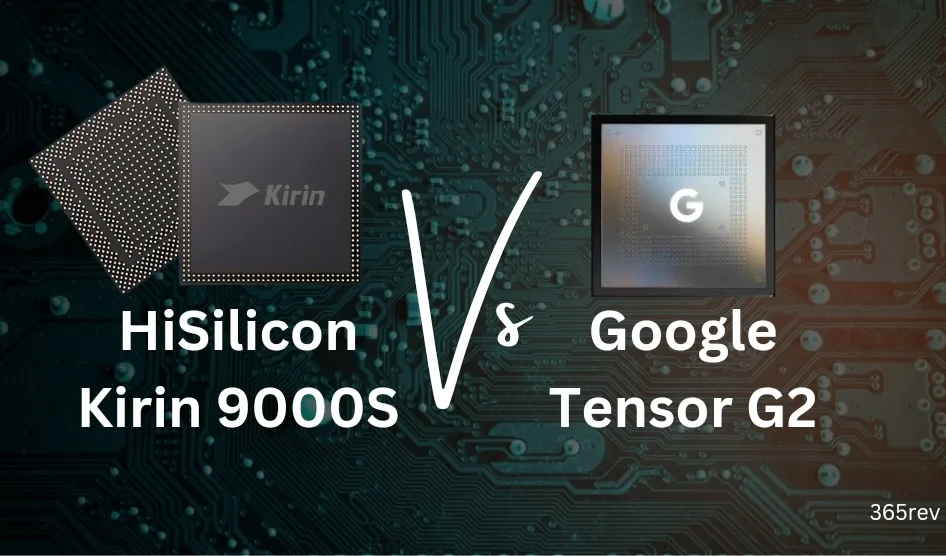HiSilicon Kirin 9000S vs. Google Tensor G2: Huawei takes on Google
Huawei are back and they're back with a big splash. However, is their new Kirin 9000S SoC any good? To test this out, we're going to compare it with the Google Tensor G2 just to see which one's better
Huawei has made a significant reentry into the market with its latest flagship SoC, the HiSilicon Kirin 9000S. In this article, we will analyze how this formidable SoC stacks up against the Google Tensor G2, a strong contender from another prominent player in the industry.
The HiSilicon Kirin 9000S, unveiled in August 2023, represents Huawei's determined foray back into the competitive market it once dominated. This flagship-grade SoC is part of the HiSilicon Kirin family, exclusively designed for Huawei smartphones. The Kirin 9000S has already marked its debut with the Huawei Mate 60 Pro.
Conversely, the Tensor G2 is Google's efforts to build upon its earlier Tensor chipset, which received mixed reviews. Similar to the Kirin 9000S, the Tensor G2 is a flagship SoC tailored exclusively for Google's smartphone lineup. You can find the Tensor G2 powering devices such as the Google Pixel 7a, Pixel 7, and Pixel 7 Pro.
Now that we have introduced the contenders, let's delve into the comprehensive comparison.
(Huawei Kirin 9000S vs. Google Tensor G2 - Specs Comparison Table)
Performance of the HiSilicon Kirin 9000S Vs. Google Tensor G2
Let's begin by examining CPU performance, a crucial factor in SoC evaluation. The Tensor G2 employs a higher clock speed, boasting a faster 2.85GHz. However, it relies on older and slightly inferior CPU cores (X1 + A78 + A55). In contrast, the Kirin 9000S, though marginally slower at 2.62GHz, employs superior CPU cores (X1 + A710 + A510). Consequently, the Kirin 9000S edges ahead in overall CPU performance. It's worth noting that this slight difference may not significantly impact real-world usage.
CPU Performance: Kirin 9000S
Gaming
While both parent companies may not be renowned for their gaming expertise, the GPUs within these SoCs appear to be evenly matched. However, it's essential to highlight that the Maleoon 910 relies on a completely custom architecture. This presents a challenge for software developers tasked with optimizing apps, games, and other software for this unique architecture. In contrast, the Mali G710 MP7 utilizes a well-established architecture, ensuring that developers encounter no difficulties in optimizing their software.
Gaming Performance: Google Tensor G2
Storage and RAM
Both SoCs incorporate the latest LPDDR5 RAM technology, but the Tensor G2 employs the faster RAM variant. This advantage allows it to excel in multitasking and seamless app switching compared to the Kirin 9000S.
On the other hand, the Kirin 9000S supports the swifter UFS 4.0 storage standard, while the Tensor G2 remains limited to UFS 3.1 support.
Storage and RAM Performance: Tie
Camera and Video
In terms of camera capabilities, the Kirin 9000S supports 50 MP cameras, while the Tensor G2 surpasses this with support for impressive 200MP cameras. Both SoCs can record 4K video at a smooth 60fps and playback at the same frame rate.
Camera and Video Performance: Tensor G2
Connectivity
Both SoCs offer comprehensive connectivity options, including 2G, 3G, 4G, and 5G support, along with Bluetooth 5.2 and WiFi 6. However, it's important to note that detailed information regarding the 5G architecture of the Kirin 9000S remains somewhat elusive. In contrast, the Tensor G2 incorporates an Exynos 5300G 5G modem with well-documented specifications.
Connectivity Performance: Google Tensor G2
Battery Life
Whilst this comparison has been a rather tight affair, one notable area of differentiation is battery life. Here, the Tensor G2 outperforms the Kirin 9000S. This discrepancy can be attributed to the Tensor G2's utilization of Samsung's advanced 5nm process, whereas the Kirin 9000S relies on a less efficient 7nm SMIC process.
Battery Life Performance: Google Tensor G2
Conclusion
Based on the performance metrics outlined above, the Google Tensor G2 emerges as the superior SoC, particularly excelling in gaming, camera capabilities, connectivity, and battery life. These strengths are compelling factors in favor of the Tensor G2. Although the Kirin 9000S performs reasonably well in areas like overall performance and RAM, it falls short in comparison to the Tensor G2's overall performance and feature set.
